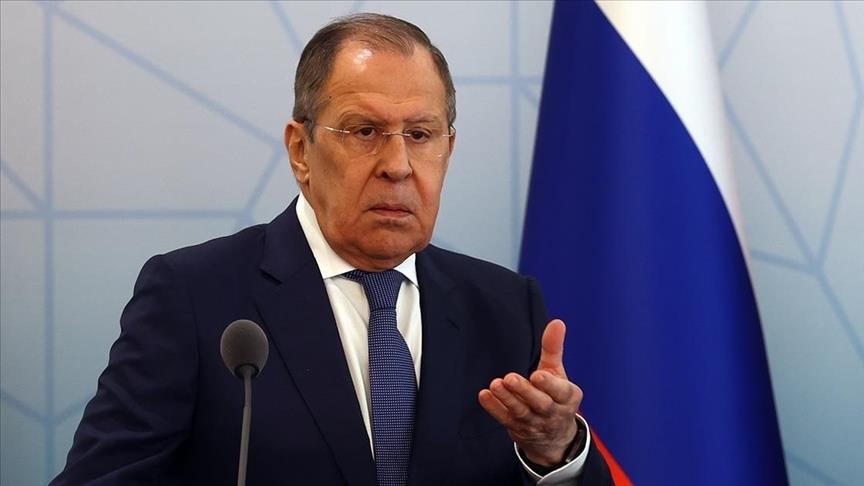Russian General Warns Of Iraqi Vietnam
The Russian top brass was doubtful there were any members of the al-Qaeda in Iraq and that resistance attacks were being carried out by diehards from the ousted Baath regime.
He said that the situation in postwar Iraq was not easy and that is why "the United States and Britain are putting pressure on other NATO members to get involved in Iraq."
"I don’t envy the Polish," he added, referring to Warsaw, a key European supporter of the U.S.-led invasion which has been given command of a multinational stabilization force in one sector of Iraq, alongside some 150,000 U.S. and 12,000 British troops.
U.S. Defense Secretary Donald Rumsfeld rebuffed Tuesday, July 1, reports Iraq was becoming a quagmire, struggling to defeat perceptions that the occupation of Iraq has reached a cul-de-sac.
Rumsfeld said American troops in Iraq would not be deterred by any "hostile" actions to stop them and insisted on efforts to pacify and stabilize Iraq.
Meanwhile, a group of U.S. senators in Baghdad warned that Iraq war is not over yet and the American public must know U.S. troops have a long struggle ahead of them.
The four Republicans and five Democrats were briefed by the U.S. civilian administrator in Iraq, Paul Bremer, and senior military officials on security in Iraq.
"The major combat is over. But for the individual soldiers and groups of soldiers, the war is still on. The risks are still there and casualties could well be taken," Armed Services Committee chairman Republican Senator John Warner told reporters.
‘Open-Ended Mission’
Bush, however, sought to shore up support for what he warned would be the open-ended U.S. mission in Iraq.
With opinion polls showing falling support for the campaign in Iraq and Congress expressing growing criticism over the toll on U.S. troops, Bush said: "The rise of Iraq as an example of moderation and democracy and prosperity is a massive and long-term undertaking.
"Our goal is a swift transition to Iraqi control of their own affairs. The people of Iraq will be secure, and the people of Iraq will run their own country," he said Tuesday, July 1.
Bush did not comment on calls to send more U.S. troops to Iraq to quell unrest nor did he set out a deadline for the return of the roughly 150,000 troops sent there.
The U.S. president also blamed Saddam loyalists groups, and even "foreign fighters" for spiraling attacks against American troops.
"They have attacked coalition forces and they’re trying to intimidate Iraqi citizens," he said.
"These groups believe they have found an opportunity to harm America, to shake our resolve in the war on terror, and to cause us to leave Iraq before freedom is fully established. They are wrong, and they will not succeed," said Bush.
He warned on June 21 that the U.S. forces in Iraq were facing a future of "danger and sacrifice.
"The men and women of our military face a continuing risk of danger and sacrifice in Iraq," Bush said in his weekly radio address.
Echoing the same statements, U.K. Foreign Secretary Jack Straw has vowed Wednesday to keep forces in Iraq "for as long as it takes," the BBC News Online said.
Flying into the Iraqi capital Baghdad, Straw said the latest attacks had increased London and Washington’s determination to root out remnants of Saddam Hussein’s regime.
"People are making a terrible mistake if they think we are going to run away from this – that is not the way the British forces operate. We have a responsibility in any event to secure this country," he said.
‘Stretching Truth’
In another development, a new poll conducted by the University of Maryland found Wednesday that 52 percent of respondents believe Bush and his aides were "stretching the truth" about Iraq’s alleged chemical, biological and nuclear programs.
As a result, 63 percent of American now believe the U.S. Congress should investigate intelligence agencies to find out how they came up with information about the alleged Iraqi arsenal, the survey found.
Similarly, 56 percent of those polled believed the administration stretched the truth or made outright false statements about Hussein’s ties to al-Qaeda.
Only 32 percent said they thought the government was being "fully truthful" about the Iraqi arsenal.
Another 10 percent said U.S. officials were presenting Congress, the American public and the international community "evidence they knew was false," indicated the survey which was made public Tuesday.
By contrast, 29 percent of respondents — up from 22 percent in May — now say the United States was wrong in starting the war.
The nationwide survey of 1,051 people was conducted from June 18 to 25 and had a margin of error of 3.5 percent.
Another poll indicated the steady dose of bad news coming from Iraq was eroding public American support for the Iraq war.
Only 56 percent of respondents in the U.S.A. Today/CNN/Gallup poll said Iraq was worth going to war over, down from 73 percent in April.
The U.S. Senate Intelligence Committee agreed on June 20 to broaden the scope of its probe into Iraq’s alleged weapons of mass destruction and whether intelligence had been manipulated to justify war.
The weapons of mass destruction — as well as the Iraqi government’s alleged ties to the al-Qaeda terrorist group — which the administration claimed represented an immediate threat to the Unites States, served as the chief rationale for launching the March 20 invasion of the country.
But more than three months since the start of the war, U.S. troops have yet to find any of the suspected weapons, putting the U.S. credibility on the line.



